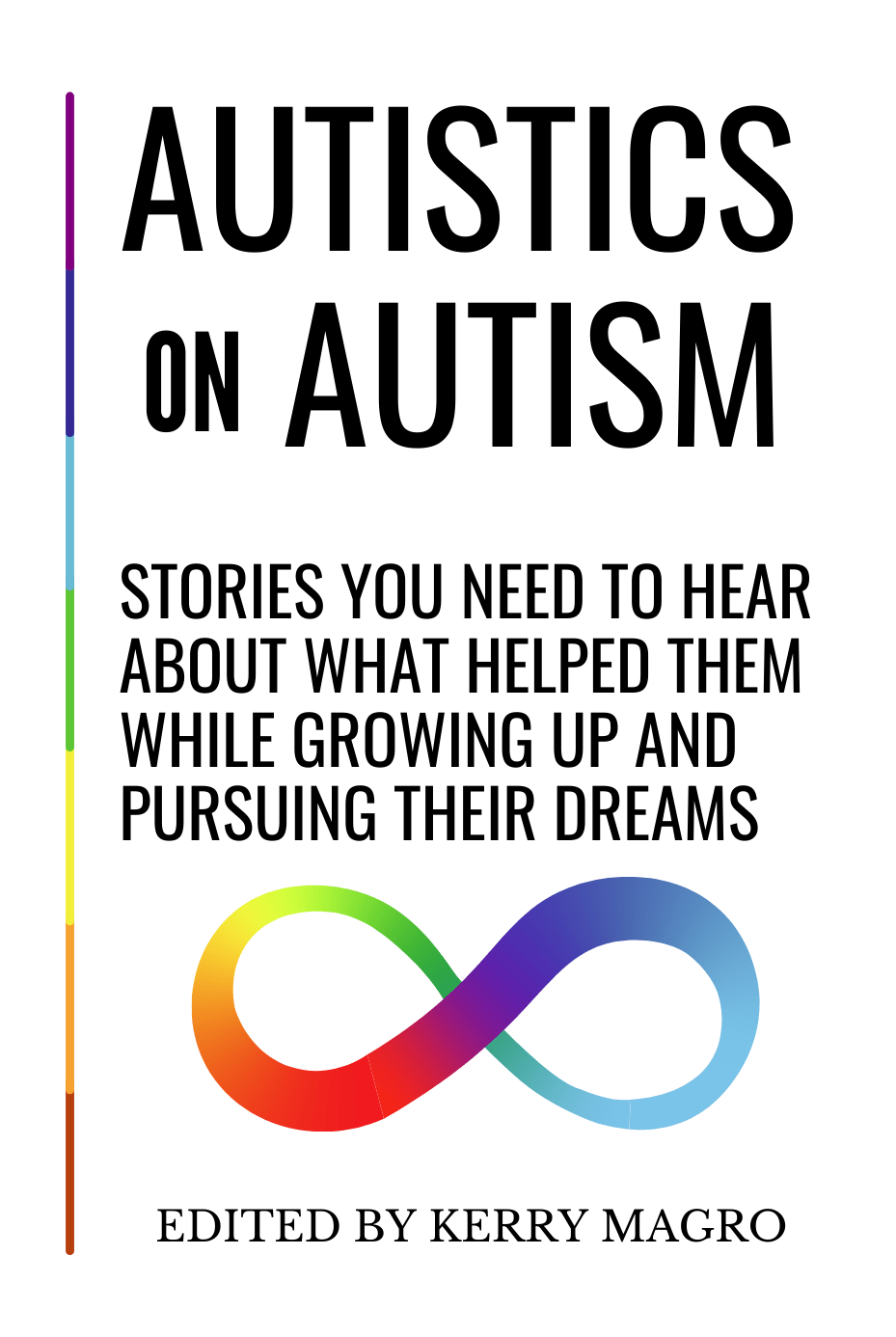This guest post is by Alexia Risley, a young woman on the autism spectrum who was diagnosed with autism at age 22 and has been accepted into Northern Arizona University. Alexia is applying for the Spring 2022 Making a Difference Autism Scholarship via the nonprofit KFM Making a Difference started by me, Kerry Magro. I was nonverbal till 2.5 and diagnosed with autism at 4 and you can read more about my organization here. Autistics on Autism: Stories You Need to Hear About What Helped Them While Growing Up and Pursuing Their Dreams, our nonprofit’s new book, will be released on March 29, 2022 on Amazon here for our community to enjoy featuring the stories of 100 autistic adults.
My story of managing some of my autism challenges is quite unique and fascinating, which requires a story of my childhood in Special Ed and how I got finally diagnosed. As a child, I was placed in Special Ed for signs of autism for six years and then transitioned into classes with additional assistance by being pulled out of class for reading lessons for several years more. I had sensory processing issues as well, so I had to be placed in occupational therapy for these 6 years to gain better coordination and manage my senses better since I was either overstimulated or understimulated by my senses – an example being that loud noises felt like being punched.
Besides my sensory intake being altered, my speech and reading skills were significantly behind. I had to see a speech therapist to learn how to pronounce letters and learn unique suffixes such as -ion. My language skills were several years behind that of someone of my grade level. After I left special education, the idea of being autistic was left behind.
Last year, I was diagnosed as schizoaffective with bipolar by two psychiatrists, and psychiatrists cannot diagnose autism. After seeing a new case manager, they informed me that schizoaffective with bipolar can be a misdiagnosis of bipolar 1 with psychotic features and autism. The negative symptoms of schizophrenia such as the flat affect, social isolation, and disorganized thinking are also found in autism, while the positive symptoms of hallucinations and delusions are found in bipolar 1. After hearing this and observing my behavior, my case manager said this often happens with individuals with undiagnosed autism. After being fearful that I was on the wrong meds, I went to an autism specialist who could also test for the difference between bipolar 1 and schizoaffective with bipolar. After doing a 500-question questionnaire for all disorders, a formal interview to assess my personality and behavior, and questions specifically for autism, she had informed me that I was not schizophrenic, but I had bipolar 1, autism, PTSD, and generalized anxiety disorder.
This diagnosis happened fairly recently, so now I need to learn how to manage some challenges. I can maintain eye contact and have conversations with reciprocal participation, but I struggle with maintaining friendships. I can say inappropriate comments and overshare fairly easily. Even if I do maintain a friendship, I often lose a connection to them, because it is hard for me to develop an emotional connection to them. However, there are a few people that I have gotten close to that have left me due to my mental illness.
I struggle with adequately expressing my emotions, especially love, which is ironic because I am an empath. I also face challenges with my obsessive thinking. I can obsess over topics, especially fantasy. I got into witchcraft because I started to believe that it is real, but it has occurred to me that autistic individuals can sometimes be so obsessive and have fantasy-oriented thinking that fantasy does in fact become reality. My obsessional thoughts have also gotten me into dark places. I believe the main reason behind these incidents is not necessarily depression or mania, but the fact that some autistic individuals do not have emotional regulation. I often don’t know how to handle my emotions while in these states so this compounds with my obsessional thinking until I can literally break down and go into a psychotic state.
I have faced several major challenges that I had to learn how to overcome as an individual with autism. One was overcoming my social anxiety. Versus learning to socialize with people in large group settings, I befriended several close friends where I could gradually over time not fear being visibly awkward or uncomfortable around. With this method, I learned to trust people and could then go into a group setting with a well-known friend so I could acclimate to larger settings of people. With this method, I am able to occasionally go to a party in college without knowing many people there.
I as well have had and still have issues with managing my emotions. I have learned to reflect daily on my emotions or even at more intervals to better cope and understand my emotions. My therapist has also taught methods on how to deal with anxiety associated with autism. One such technique is, for example, first, I wake myself up with some cold water or ice, such as taking a cold shower; I then must exercise to calm my system down. I finally finish off with progressive muscle relaxation. Other ways that I have learned to manage my stress is to sleep at regular intervals and to make sure that I eat at least three times a day, so I maintain a balanced circadian rhythm. I also plan ahead to make sure that I allocate a certain amount of time for homework each day so as not to overwhelm myself by procrastinating. I also have hyperactivity and some inattention due to being autistic. One method that I use is to exercise routinely, so I can calm my mind and body so I can focus better during classes. Also, as a child, I struggled with sympathizing with people.
Through therapy and several friendships, I have learned to put myself in someone’s shoes via logic and emotions to better understand their circumstances.
Follow my journey on Facebook, my Facebook Fan Page, Tiktok, Youtube & Instagram,
My name is Kerry Magro, a professional speaker and best-selling author who is also on the autism spectrum that started the nonprofit KFM Making a Difference in 2011 to help students with autism receive scholarship aid to pursue post-secondary education. Help support me so I can continue to help students with autism go to college by making a tax-deductible donation to our nonprofit here.
Autistics on Autism: Stories You Need to Hear About What Helped Them While Growing Up and Pursuing Their Dreams, will be released on March 29, 2022 on Amazon here for our community to enjoy featuring the stories of 125+ autistic adults. 100% of the proceeds from this book will go back to our nonprofit to support initiatives like our autism scholarship program. In addition, this autistic adult’s essay you just read will be featured in a future volume of this book as we plan on making this into a series of books on autistic adults.















